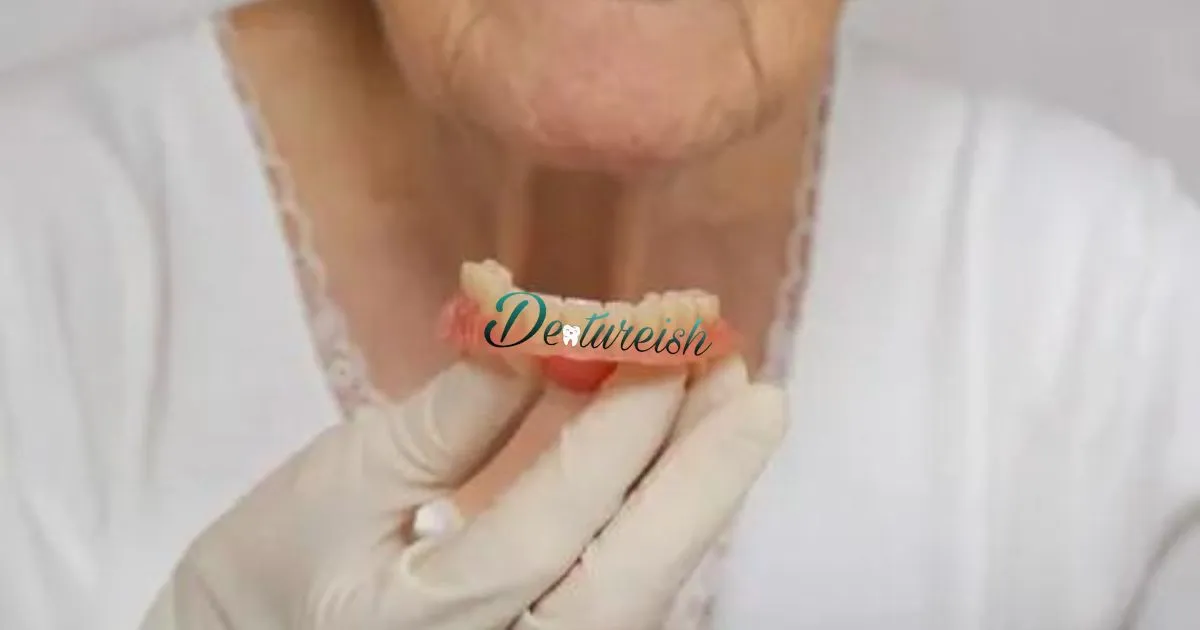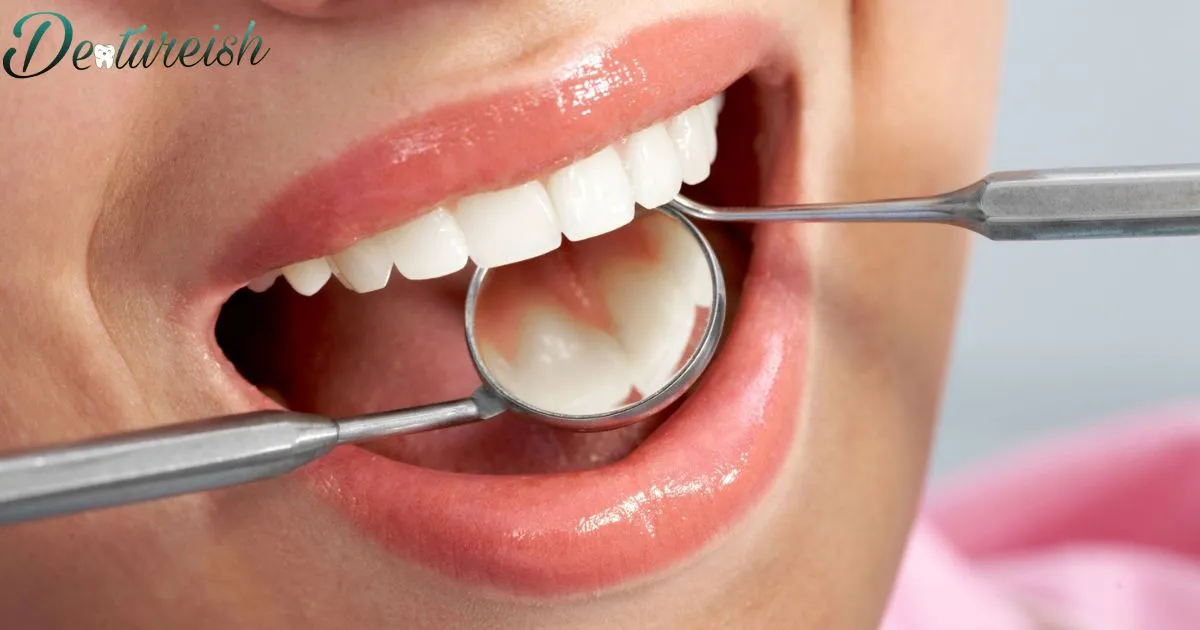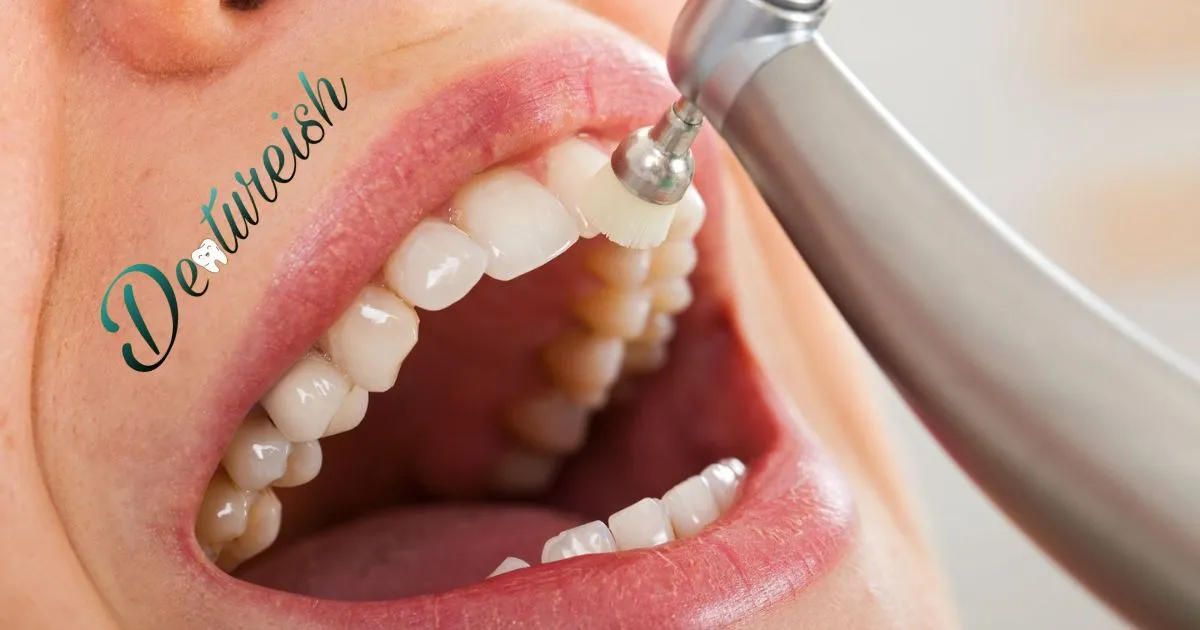Over time, dentures can accumulate stubborn deposits of plaque and tartar, which can be difficult to remove during normal cleaning. Getting rid of this hard plaque is important for maintaining good oral health.
Removing established hard plaque from dentures requires more than just daily brushing. Specific methods and products can break down those stubborn deposits and help keep dentures clean.
The key is using mechanical cleaning with denture brushes and pastes containing chemical or abrasive agents. Soaking solutions also help loosen plaque so it can be scrubbed away more easily. With some periodic intensive cleaning, you can keep your dentures plaque-free.
Remove Hard Plaque from Dentures
Over time, dentures accumulate stubborn hard plaque and tartar that can be difficult to remove during normal cleaning routines. Getting rid of this tenacious buildup is crucial for maintaining good oral health. This comprehensive guide will walk you through the most effective methods for removing established hard plaque from both partial and full dentures.
What is a Hard Plaque on Dentures?
One recommended method is to use specialized denture cleansers and brushes designed to clean plaque off dentures, thereby promoting a hygienic oral environment and preventing the development of hardened deposits.
- Hard plaque provides an ideal environment for continued plaque growth
- Can cause gum inflammation, irritation, bad breath, staining, and decay
- Difficult to remove with regular brushing and immersion cleaning
- Requires periodic deep cleaning methods
Will Vinegar Remove Plaque From Dentures
Vinegar often gets recommended as a cleaning solution for dentures. Some think its acidic properties can dissolve plaque buildup. But research shows vinegar alone does not effectively remove tartar.
Soaking dentures in vinegar may help sanitize and prevent more plaque. But once hardened calculus develops, specialized cleaners work better. Denture wearers still need to brush regularly with pastes containing mild abrasives.
Periodic professional cleanings also help lift staining and heavy tartar buildup. Vinegar can supplement a dental hygiene routine but does not replace other methods for removing established denture plaque.
Why Remove Established Hard Plaque?
Here’s why it’s important to break down that tenacious buildup:
- Maintains good oral hygiene and denture fit
- Prevents new plaque accumulation
- Reduces gum irritation and inflammation
- Helps avoid stains, odors, and decay
- Improves denture comfort and performance
Neglecting thorough plaque removal allows increasing calculus formation. That rough surface makes cleaning even more difficult and the situation progressively worse.
Supplies for Removing Hard Plaque
To break up calcified plaque, use cleaning tools with abrasive abilities beyond regular denture brushes and toothpaste. Here are the most effective supplies:
Denture Brushes
- Firm nylon or soft toothbrush styles
- Reach all denture surfaces and crevices
- Some with built-in plaque removal aids
Denture Cleanser Pastes
- Mild abrasive pastes help scrub away plaque
- Use sparingly to prevent denture scratching
Denture Soaking Solutions
- Chemical-based effervescing tablets
- Alkaline peroxides effectively wipe out bacteria
- Loosen plaque so it can be brushed off
Ultrasonic Cleaners
- Powerful ultrasonic waves dislodge plaque
- Combine with chemical soaks for best results
- Effectively clean hard-to-reach areas
Dentist Visits
- Dental professionals have specialized tools and training for thorough plaque and tartar removal
- Quick and effective deep cleaning
- May be recommended every 6-12 months
What Causes Plaque On Dentures

Vinegar often gets recommended as a cleaning solution for dentures. Some think its acidic properties can dissolve plaque buildup. But research shows vinegar alone does not effectively remove tartar.
Soaking dentures in vinegar may help sanitize and prevent more plaque. But once hardened calculus develops, specialized cleaners work better. Denture wearers still need to brush regularly with pastes containing mild abrasives.
Periodic professional cleanings also help lift staining and heavy tartar buildup. Vinegar can supplement a dental hygiene routine but does not replace other methods for removing established denture plaque.
Methods to Remove Established Hard Plaque
With the right supplies and techniques, you can break down built up plaque and keep dentures clean:
Step 1: Loosening Hard Plaque
Before attempting to brush away plaque, it helps to loosen the bond with abrasives or chemical cleansers first. This makes physical removal easier and more successful.
Soaking
- Create a denture bath by dissolving a denture cleansing tablet in warm water according to package instructions.
- Soak dentures for duration recommended on label – often overnight.
- Rinse well before brushing.
Table: Common Denture Soaking Solution Ingredients
| Ingredient | Action |
| Alkaline peroxide | Kills bacteria, breaks down plaque |
| Sodium bicarbonate | Dissolves and loosens deposits |
| Citric acid | Removes stains |
Ultrasonic Bath
- Fill water chamber with warm water and denture cleaning solution
- Fully immerse dentures and run a complete ultrasonic cycle per device guidelines
- The powerful waves will help disintegrate plaque
Step 2: Brush Away Hard Plaque
After loosening and softening the plaque, use denture brushes and pastes to thoroughly scrub away deposits:
- Apply abrasive paste sparingly to avoid scratching
- Use firm brushing motion and pay extra attention to plaque-prone areas
- Focus on crevices, holes, uneven edges
- Brush all interior and exterior surfaces
- Rinse thoroughly when finished
Denture Brushing Tips
- Hold denture firmly to avoid dropping during vigorous scrubbing
- Start with larger broad surfaces then address detailed areas
- Adjust wrist angle to adequately access all areas
- Pay special attention to fitting surfaces and teeth
- Rinse under running water when done
Step 3: Brighten and Shine
After removing plaque deposits, soak dentures again in an effervescing cleaner to further disinfect and help remove stains.
Then brush once more with non-abrasive paste to polish away any residual buildup and restore the shine. Dentures will look clean and bright again.
Step 4: Daily Maintenance
To prevent recurrence of hard plaque deposits:
- Brush dentures thoroughly every day
- Use non-abrasive paste to avoid scratching
- Soak periodically in cleansing tablets – weekly or as needed
- Schedule professional cleanings every 6-12 months
- Monitor for plaque buildup between teeth or in crevices
Following good daily and weekly home care will minimize tartar. But periodic deep cleanings are still needed to remove any stubborn deposits that form.
How To Remove Calcium Buildup On Dentures
Vinegar often gets recommended as a cleaning solution for dentures. Some think its acidic properties can dissolve plaque buildup. But research shows vinegar alone does not effectively remove tartar.
Soaking dentures in vinegar may help sanitize and prevent more plaque. But once hardened calculus develops, specialized cleaners work better. Denture wearers still need to brush regularly with pastes containing mild abrasives.
Periodic professional cleanings also help lift staining and heavy tartar buildup. Vinegar can supplement a dental hygiene routine but does not replace other methods for removing established denture plaque.
Avoiding Problems with Improper Cleaning

It’s important to avoid these common cleaning mistakes:
- Brushing too aggressively can scratch and damage dentures
- Overusing abrasive pastes also leads to scratches
- Bleach solutions will discolor and corrode denture materials over time
- DIY remedies may be too harsh and cause cracking
- Neglecting thorough plaque removal allows tartar to reaccumulate
Carefully follow manufacturer’s instructions for any cleaning products. See your dentist with any concerns or for professional cleanings.
When to See the Dentist About Hard Plaque
Schedule an appointment with your dentist if you notice:
- Increased buildup between teeth or in crevices
- Red or inflamed gums under the denture
- Odor or bad taste even after cleaning
- Poor fit, chewing issues, or sore spots
The dentist has specialized equipment and training to thoroughly remove tartar from dentures and identify any issues. Quick professional cleaning gets dentures squeaky clean again.
Key Takeaways: Removing Hard Plaque From Dentures
- Hard plaque is a stubborn crusty layer of bacteria, food, saliva, and minerals
- Allows more plaque accumulation if not removed
- Causes bad breath, gum irritation, discoloration
- Difficult to brush away with normal cleaning
- Combine chemical soaks and ultrasonic baths to loosen plaque
- Use firm denture brushes and mild abrasives to scrub away deposits
- Brighten with additional soaking and polishing
- See the dententist periodically for deep cleanings every 6-12 months
- Proper cleaning prevents recurrence of tartar buildup
Thoroughly removing denture plaque takes some extra effort but is crucial for keeping gums healthy and breath fresh. The reward is clean, bright dentures that function and fit comfortably. With good daily maintenance plus periodic deep cleaning, you can keep hard plaque from coming back.
Frequently Asked Question
What is hard plaque on dentures?
Hard plaque is a dense layer of bacteria, food, saliva, and minerals adhering to dentures.
Why is it important to remove hard denture plaque?
Removing hard plaque prevents more plaque accumulation, gum inflammation, bad breath, and decay.
What supplies help scrub away denture plaque?
Firm denture brushes, mild abrasive pastes, ultrasonic cleaners, and chemical soaking solutions help remove plaque.
How can I loosen stuck-on denture plaque?
Soak dentures overnight in a dissolving effervescent tablet solution to loosen plaque so it brushes off easier.
Should I see the dentist about the denture plaque?
Yes, visit the dentist every 6-12 months for professional cleanings to thoroughly remove stubborn hard plaque.
Conclusion
Over time, hard plaque accumulates on dentures. This stubborn deposit is difficult to brush away during normal cleaning. Combining chemical soaks and ultrasonic baths first helps loosen plaque so it can be scrubbed off easier. Use firm denture brushes and mild abrasive pastes to thoroughly remove deposits.
Following proper plaque removal methods keeps dentures clean. Maintain dentures daily using soft brushes and non-abrasive paste. Soak periodically in effervescing tablets. See your dentist every 6-12 months for deep cleanings. With good home care and professional cleaning, you can prevent hard plaque from returning.

